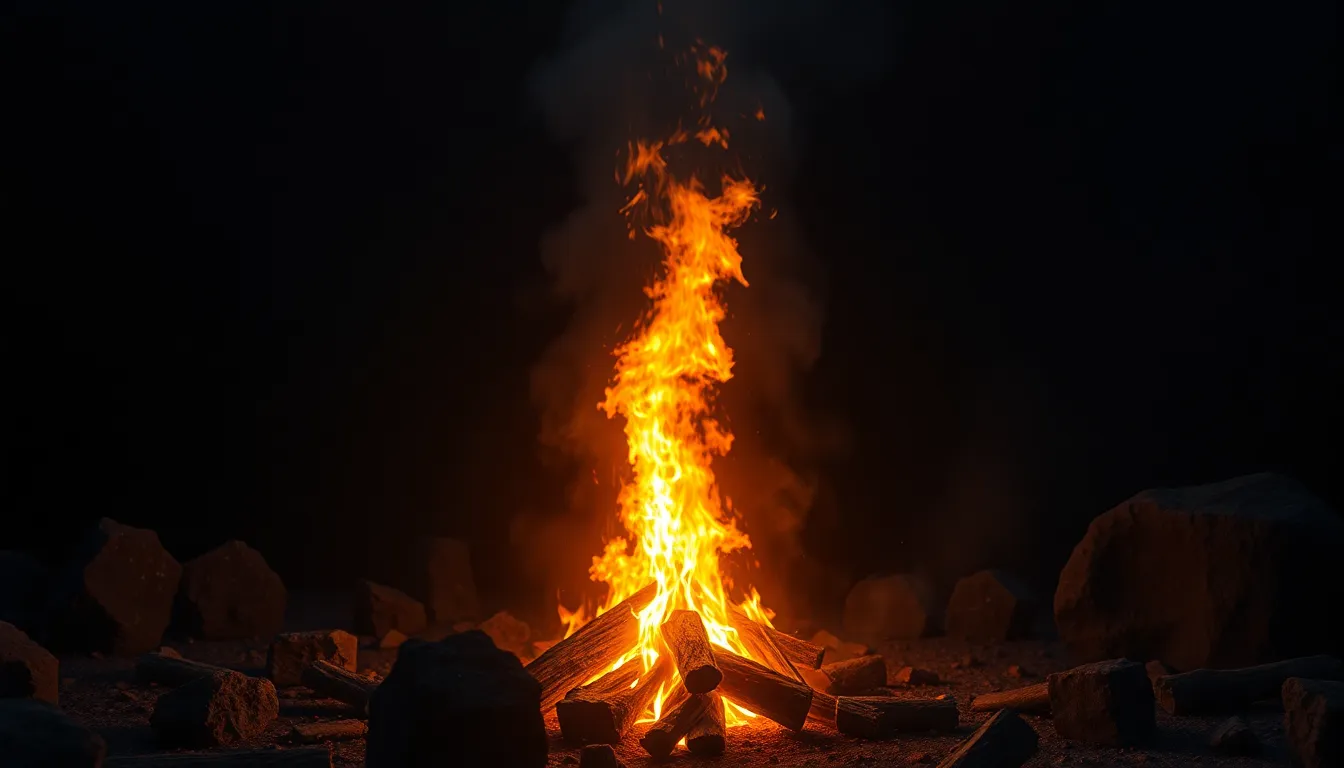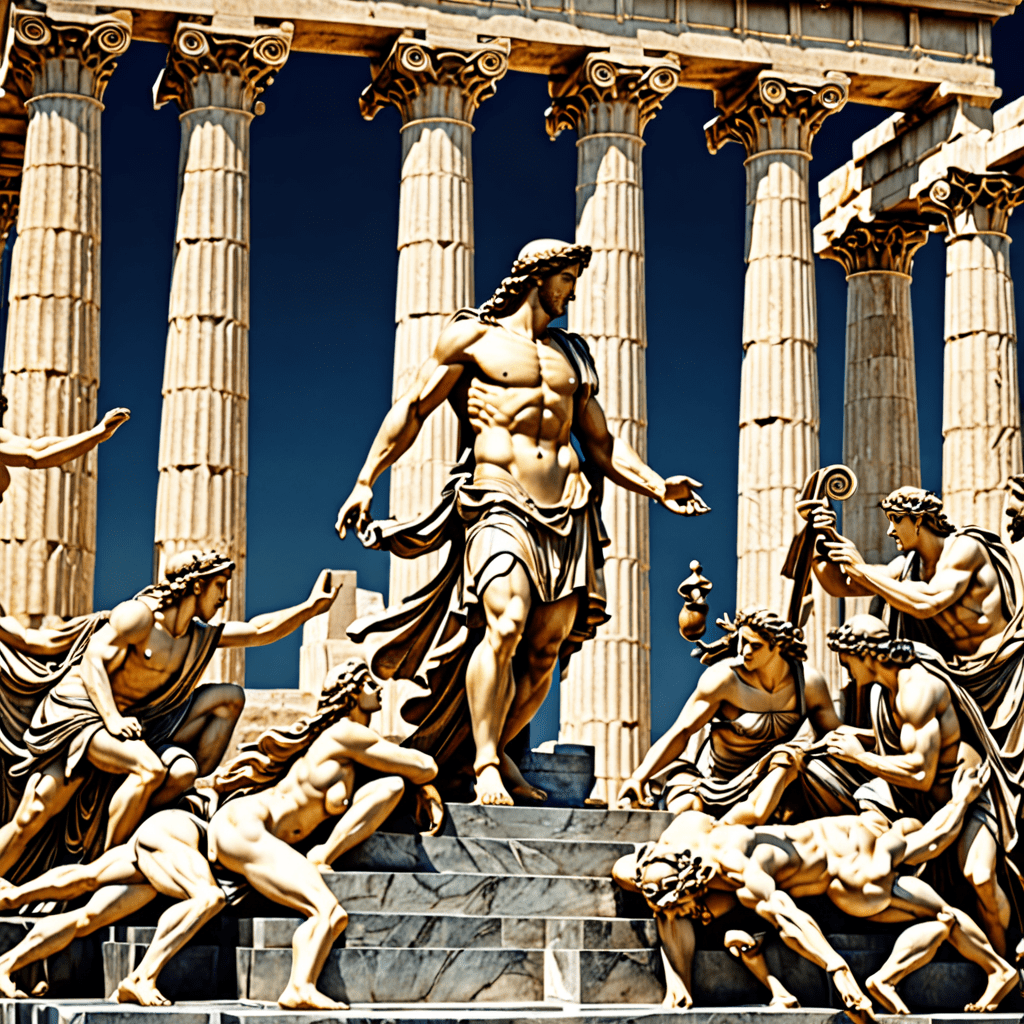The Sacred Fire: Flames That Ignite Mythical Stories
Introduction to Sacred Fire
Sacred fire holds a profound significance across diverse cultures, symbolizing life, transformation, and the divine. In various mythologies, fire plays a crucial role in storytelling, representing both creation and destruction. This article delves into the multifaceted dimensions of sacred fire, exploring its historical significance, its role in world religions, and its presence in mythology and modern narratives.
Historical Significance of Fire in Ancient Cultures
Throughout history, fire has been revered as a powerful symbol of life and transformation. Ancient civilizations often utilized fire in rituals and ceremonies, recognizing its capacity to bring both warmth and danger.
- Greece: In ancient Greece, fire was central to worship, with the Olympic flame symbolizing purity and the spirit of competition.
- Egypt: The Egyptians used fire in their burial practices, believing it aided the deceased’s journey to the afterlife.
- India: In Hinduism, fire is integral to rituals known as Yajnas, where offerings are made to the deities through fire.
Fire also figures prominently in creation myths, often depicted as a transformative force that shapes the world and humanity.
Sacred Fire in World Religions
Sacred fire manifests uniquely within major world religions, serving as a focal point for worship and spiritual connection.
- Hinduism: The Agni, or fire god, is central to many rituals. The Yajna ceremonies are performed to invoke divine blessings through fire.
- Zoroastrianism: Fire is considered a symbol of divine presence and purity, with Atash (sacred fire) maintained in fire temples.
- Buddhism: Fire offerings are made to symbolize the burning away of ignorance and the illumination of wisdom.
In these contexts, fire is not merely a physical element but also a symbol of purity and the divine, representing a bridge between the earthly and the celestial.
Mythical Creatures and Sacred Fire
The connection between fire and mythical beings is rich and varied, with many stories highlighting the transformative power of flame.
- Phoenix: A symbol of rebirth, the Phoenix rises from its ashes, embodying the cycle of life, death, and resurrection.
- Dragons: Often depicted as fire-breathing creatures, dragons represent both destruction and the guardianship of treasures, including wisdom.
These narratives reveal the duality of fire as both a creative and destructive force, emphasizing its role in transformation and renewal.
The Role of Sacred Fire in Folktales and Legends
Sacred fire frequently appears in folktales and legends, illustrating themes of rebellion, sacrifice, and enlightenment.
- Prometheus: In Greek mythology, Prometheus defies the gods by stealing fire and giving it to humanity, symbolizing the quest for knowledge.
- Firebird: In Slavic folklore, the Firebird represents the elusive nature of happiness and the trials one must endure to attain it.
Cross-cultural comparisons reveal how fire-related tales often convey universal themes, highlighting humanity’s struggle against adversity and the pursuit of enlightenment.
Fire as a Symbol of Knowledge and Enlightenment
Fire has long been associated with wisdom and knowledge, representing the light of understanding in philosophical contexts.
- Prometheus: His act of bringing fire to humanity is a powerful metaphor for enlightenment and the advancement of civilization.
- Heraclitus: The philosopher famously stated, “Everything flows,” emphasizing the ever-changing nature of reality, often symbolized by fire.
- Alchemy: In alchemical traditions, fire represents transformation and the process of turning base materials into gold, symbolizing spiritual ascent.
This association underscores the idea that fire is not only a physical element but also a metaphorical representation of the quest for knowledge and enlightenment.
Rituals and Festivals Celebrating Sacred Fire
Across the globe, numerous festivals celebrate sacred fire, reflecting its importance in cultural and communal practices.
- Diwali: The Festival of Lights in India celebrates the victory of light over darkness, featuring numerous fire rituals.
- Beltane: A Celtic festival marking the beginning of summer, it involves lighting bonfires for protection and fertility.
- Holi: The festival of colors in India begins with Holika Dahan, a bonfire symbolizing the triumph of good over evil.
These communal fire rituals foster a sense of belonging and connection, bridging generations and cultures through shared traditions.
Sacred Fire in Contemporary Literature and Media
Modern literature and media continue to draw on the motifs of sacred fire, reflecting its enduring significance in storytelling.
- Game of Thrones: The series utilizes fire as a symbol of power and destruction, notably through the character of Daenerys Targaryen and her dragons.
- The Hunger Games: Fire represents rebellion and survival, with Katniss Everdeen’s iconic flaming dress symbolizing resistance against oppression.
This resurgence of interest in mythical stories involving fire showcases its timeless relevance and the human fascination with its dual nature.
The Psychological and Emotional Resonance of Fire
Fire evokes deep psychological and emotional responses, symbolizing warmth, safety, and creativity while also representing danger and destruction.
- Comfort: The presence of fire can provide a sense of security and comfort, often associated with home and family.
- Passion: Fire has long been a metaphor for human emotions, especially passion and anger, reflecting its volatile nature.
- Transformation: Fire’s ability to transform materials and landscapes mirrors the personal transformations individuals experience.
Thus, fire serves as a powerful symbol in both our emotional landscapes and our collective cultural narratives, reminding us of its complex role in human existence.
Conclusion
From ancient rituals to modern storytelling, the sacred fire remains a potent symbol of transformation, knowledge, and community. Its presence in various cultures and mythologies highlights the universal themes of creation, destruction, and enlightenment, inviting us to reflect on the profound significance of fire in our lives. As we continue to explore the tales and traditions associated with sacred fire, we are reminded of its enduring power to ignite our imagination and connect us to our shared humanity.




